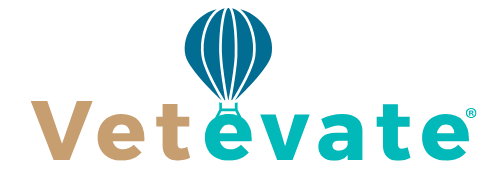When using a veterinary job board, one of the most common questions job seekers have is how long it will take to land a position. While the veterinary industry is known for having a strong demand for skilled professionals, the time it takes to secure a job still varies greatly depending on several factors. These include the candidate’s level of experience, the type of role they’re applying for, the location of the job, and the competitiveness of the field. Understanding the nature of the veterinary job market is a good starting point when setting realistic expectations.
In general, veterinary medicine is experiencing a hiring shortage, especially for associate veterinarians and credentialed technicians. This creates favorable conditions for job seekers, with many employers eager to fill vacancies quickly. However, urgency doesn’t always mean instant results. Some clinics are understaffed and eager to hire immediately, while others take a more cautious approach, evaluating multiple candidates and conducting several rounds of interviews. That means while some candidates may get an offer within days of applying, others may wait several weeks or longer before they hear back.
Job boards can speed up the process, but they don’t eliminate the variability in how employers hire. The best veterinary job boards bring visibility to high-quality listings and make it easier to connect with employers, but even then, the hiring timeline depends on how responsive the employer is and how closely the applicant matches the role. Certain specialties, such as emergency care or surgery, may move more quickly due to high demand. Meanwhile, academic or leadership roles often involve a lengthier review and vetting process. Keeping this variability in mind helps manage expectations while staying motivated during the search.
Factors That Influence the Speed of Hiring
How quickly you get a job through a veterinary job board depends on several key variables that shape the employer’s hiring process and your overall fit for the role. One of the most significant factors is your experience level. If you are a new graduate looking for mentorship or entry-level opportunities, it might take longer to secure the right fit, especially if you are hoping for structured onboarding or a specific learning environment. However, if you are an experienced veterinarian with a flexible schedule, you may receive calls or interview requests almost immediately, particularly in high-need regions.
Another factor is your geographic flexibility. If you are open to relocating or considering positions in rural or underserved areas, your chances of landing a job quickly increase significantly. These locations often have urgent hiring needs and fewer local candidates to choose from, so they tend to respond to applicants faster. On the other hand, urban areas with multiple veterinary schools or a large veterinary workforce may have more applicants competing for each position, which can slow down the process.
The completeness and professionalism of your application materials also play a role in how quickly you move through the hiring funnel. Submitting a polished resume, a tailored cover letter, and a thoughtful application message increases your chances of getting a timely response. Many veterinary job boards offer resources to help improve these materials or even allow employers to filter candidates by profile quality. If your application lacks clarity, key experience, or personal relevance to the job, it may be passed over even in a market where hiring demand is high.
Employer responsiveness and the internal structure of the clinic or organization also affect how long the process takes. A solo practice owner may reach out within days of posting the job, while a larger organization might take longer due to HR protocols or multiple decision-makers. Clinics that post through veterinary job boards with clear timelines and communication tools tend to speed up the process. Still, not all hiring teams operate at the same pace, and job seekers should be prepared for some variation.
Timelines to Expect for Responses and Offers
Although timelines vary, most veterinary job seekers using a professional job board can expect to start seeing responses within one to two weeks of applying, assuming their materials are strong and the role is a good match. Initial contact may be a message to set up a phone interview or a request for additional materials. If you haven’t heard back within two weeks, it’s reasonable to follow up with a brief, polite email expressing continued interest. In many cases, employers simply get busy, and a gentle reminder helps keep your application top of mind.
Once contact is made, interviews can happen quickly—sometimes within a few days. Some clinics move through the process in just one or two conversations, especially when their need is immediate and the candidate is highly qualified. Others might schedule a series of interviews, reference checks, or even working interviews where the candidate spends time at the clinic before a final decision is made. In these cases, the full process may take three to six weeks or longer.
Job seekers should also factor in their own availability and scheduling flexibility. If you can make time for interviews quickly and remain accessible to potential employers, you increase the chances of moving through the process efficiently. Delays in responding to emails or limited availability for phone calls and interviews can add unnecessary time. Staying proactive, organized, and communicative helps keep things moving.
After an interview or working interview, employers may extend offers within a few days, especially if they’ve already interviewed multiple candidates. Still, some may take time to compare applicants, finalize details, or wait for internal approvals. Once an offer is made, you may be asked to start within two to four weeks, depending on your current obligations and whether relocation or licensing is required. Overall, from application to offer, a typical job search through a veterinary job board might take anywhere from two to eight weeks, though some may move faster or slower.
How to Use the Job Board to Your Advantage
Using a veterinary job board efficiently can make a noticeable difference in how quickly you land a job. Creating a strong, complete profile is one of the most important steps. Include a well-formatted resume, a professional summary, and clear details about your qualifications, interests, and availability. Many veterinary job boards allow employers to browse candidate profiles directly, so keeping yours up to date increases your visibility and the chance that a clinic will reach out to you first.
Setting up job alerts and checking the board regularly allows you to apply early when new positions are posted. Being among the first applicants often improves your chances of getting noticed. When applying, make sure each submission is tailored to the job. Referencing specific aspects of the role or clinic in your cover letter or message shows genuine interest and can help you stand out from other candidates. Avoid generic or copy-paste responses that don’t address the job at hand.
You can also use the board to follow up and track your applications. Many platforms provide dashboards where you can monitor the status of each submission. If a job disappears, it may have been filled; if it’s still listed after a few weeks, you may still have a chance. Don’t hesitate to revisit a listing and apply again if you’ve updated your resume or have additional credentials to share.
Patience and persistence are key. Even in a strong job market, finding the right fit can take time. Keep applying, keep improving your materials, and stay engaged with the platform. The best veterinary job boards are designed to simplify the process, connect you with employers faster, and give you the tools you need to succeed—so make full use of them.
Getting a Job with a Veterinary Job Board
Getting a job through a veterinary job board can be a relatively fast process, but it still depends on multiple factors, including your experience, location preferences, the type of role you’re pursuing, and how proactive you are. While some candidates may receive interview requests within days, others might need to wait a few weeks or more before landing the right opportunity. The best way to speed up the process is to present yourself professionally, stay engaged with the board, and remain flexible and responsive throughout. With the right approach and tools, a veterinary job board can help you move confidently and efficiently toward your next great position in animal health.




